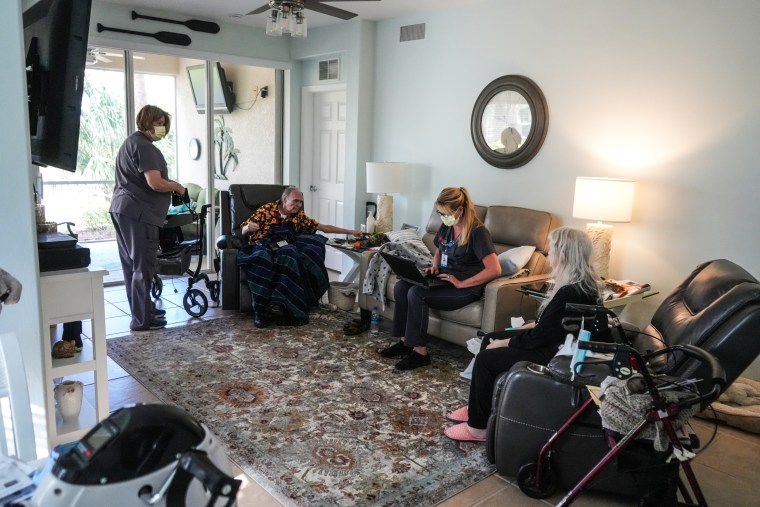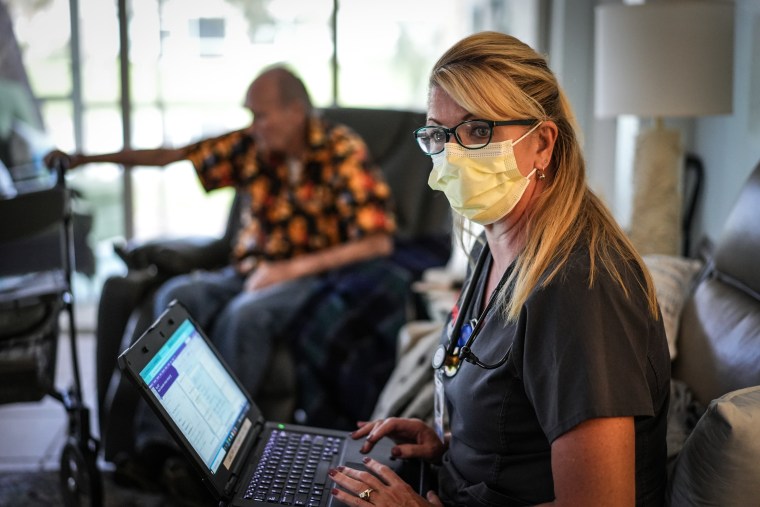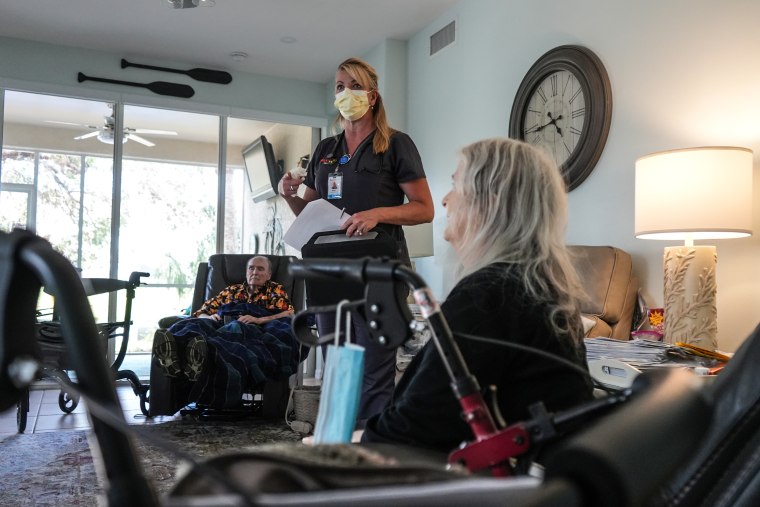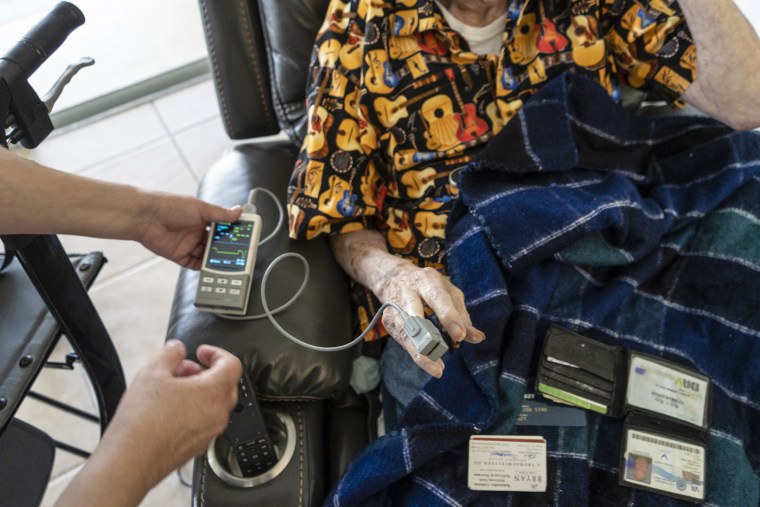Roy Key was in too much pain to come to the phone on Wednesday.
A week earlier, Hurricane Ian had torn through Fort Myers, Florida, where he lives, leaving homes flooded, knocking out power and sewage, and disrupting water lines.
Key, an 87-year-old U.S. Air Force veteran, takes morphine to cope with pain from a broken hip and fractured femur — the result of a fall in July — and an old shoulder injury from his service. But the Veterans Affairs clinic in Lee County, where he normally receives care, sustained major damage from the storm and remains closed.
That forced Key and his wife, Sara, to navigate bureaucracies of the VA health care system that they would not have had to face otherwise.
Sara said she wasn't able to get hold of Roy's doctor after the storm, and that left Roy "missing two of the most important medicines that he takes." The second prescription, pregabalin, is for nerve pain.
By Wednesday, Sara said, Roy was “rocking in pain.” If he went too long without morphine, he could go into withdrawal.
For many Lee County residents like the Keys, the hurricane upended nearly every facet of daily life. Although the Keys' power was restored on Wednesday, more than 134,000 homes and businesses were still without it as of Friday.
At least 128 people in Florida died because of the storm, according to NBC News’ count. Most of the deaths have been attributed to drowning, but a few people died because of a lack of access to emergency medical services, according to the Florida Medical Examiners Commission.
At least nine hospitals lost access to running water last week, though it has been restored. Mary Mayhew, CEO of the Florida Hospital Association, said three hospitals in Lee and Charlotte counties had to shut down and evacuate patients. One remains closed.
At the same time, many hospitals are seeing an influx of new patients who were injured or whose medical conditions worsened because of the hurricane. And they’re experiencing staffing shortages.
“The issue that will persist for quite some time that is affecting health care in the region is the impact on staff,” Mayhew said. “We have many staff whose lives have been upended, who have been displaced from their homes and are unable to work.”
Pharmacies, too, closed temporarily after the storm. Walgreens said 15 of its pharmacies in the Fort Myers and Fort Myers Beach areas were closed on Sept. 29, though all but one has reopened. CVS said 19 pharmacies in Fort Myers were closed on Sept. 28 but reopened a couple days later.
Roy and Sara Key moved to Florida from Chattanooga, Tennessee, in April after their house there was destroyed in a tornado. But Roy had not yet been properly registered as a veteran living in Florida before Ian hit, Sara said, so the VA considered him displaced. That made it difficult to get his prescriptions at a VA pharmacy in Lee County.
Sitting in the emergency room to get medication didn’t seem like an option to Roy, since the effort could exacerbate his pain. (Mayhew said emergency department wait times have “most definitely” increased because of the storm.)
Roy is also unable to drive; he uses a lift chair and walker. Although his daughter lives nearby, her home flooded, her two cars were totaled and her husband had a heart attack the night of the hurricane (he survived). The hardware store where her husband worked was destroyed as well.
On Wednesday, Sara finally got a VA doctor in Tennessee to send Roy pregabalin in the mail.
In an attempt to get medical attention, the couple called DispatchHealth, a mobile service that’s treating patients in their homes in Fort Myers and nearby areas. Kelly McKenna, the nurse practitioner who visited the Keys through that service, said many people in the area have struggled to access medication and health care since the storm.

DispatchHealth said it normally received around 35 calls a day before the storm, but the volume has since doubled.
Dr. Adam Perry, DispatchHealth’s regional medical director, said the patients the company is seeing now are around 80 years old, on average, and many suffer from health conditions exacerbated by the region's storm-related power outages, transportation issues or pharmacy and health provider closures.

Perry said many households still lack running water or operational sewage lines, and cell service in Fort Myers remains spotty.
"Pharmacies just opened the other day," he said. "It’s very difficult to get things like imaging, outpatient services."
DispatchHealth doesn’t normally prescribe narcotics, however, so so the company hit red tape in trying to help Roy get a morphine prescription.

After NBC News inquired about the Keys’ situation with the Department of Veterans Affairs, the department said it would have staff reach out to him. Hours later, Roy filled his morphine prescription at the VA’s Lee County pharmacy, which remains open even though the clinic is closed.
Sara, meanwhile, has health issues of her own: a history of acute heart failure. She, too, relies on medication, which her daughter was finally able to pick up at a pharmacy on Wednesday.
“I’m dealing with whether I’m going to be alive the next day to help my husband or not,” Sara said.

